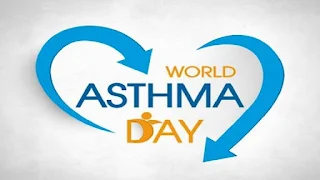On the first Tuesday of May of each year, the world commemorates World Asthma Day, which is part of the global initiative to combat asthma that aims to raise awareness about the disease, its diagnosis and treatment.
The history of this day dates back to 1993, when the National Heart, Lung, and Blood Institute, the National Institute of Health in the United States, and the World Health Organization established the Global Initiative for Asthma (GINA) working group, which in 1995 prepared its report on the disease entitled “The Global Strategy for Treatment and Prevention.” of bronchial asthma.” The Global Initiative for Asthma (GINA) program subsequently developed to develop cooperation between doctors, hospitals and authorities to disseminate information on treatment methods for patients with bronchial asthma, as well as to ensure the implementation of research results into standards for the treatment of bronchial asthma.
The first World Asthma Day was held in Barcelona in 1998, as part of the global revival of asthma, with the participation of 35 countries. Over time, World Asthma Day has gained support around the world and has become one of the most important events for asthma awareness and prevention.
GINA notes that the theme of World Asthma Day in 2024 is “Asthma education enhances possibilities.” Emphasizing the need to provide people with asthma with the necessary information to manage their condition and determine when to seek help. Encouraging medical professionals to increase their knowledge of how to reduce deaths due to asthma, in addition to published reliable evidence and information for effective treatment of asthma.
Bronchial asthma (shortness of breath and suffocation) is an allergic disease that occurs in the form of recurrent attacks of shortness of breath caused by a diffuse disorder of bronchial obstruction, which is associated with the localization of the allergic reaction in the bronchial tissues. It is one of the major non-communicable diseases that affects both children and adults. Asthma is the most common chronic disease among children. An attack of suffocation occurs when the functioning of the cells of the immune system is disturbed, causing inflammation in the bronchial tubes that leads to their narrowing.
The disease develops due to internal (mainly genetic) and external factors (allergens, tobacco smoke, industrial dust, air pollution). Allergens include house dust, animal hair, mold, pollen, etc. It has also been shown that the risk of developing asthma in children is 2.5 times higher if one parent suffers from the disease, and 6.6 times higher if both parents are sick. Cold air, strong emotional feelings, such as anger, fear, and exercise, also trigger an asthma attack.
In addition, some medications can cause asthma, such as aspirin and other non-steroidal anti-inflammatory drugs, as well as some medications used to treat high blood pressure, heart disease, and migraines.
According to GINA, more than 260 million people in the world suffer from asthma and it causes more than 450,000 deaths annually, most of which are preventable.
It should be noted that the causes of asthma have not yet been fully identified. But even though asthma cannot be cured, the correct use of inhaled medications allows people with asthma to control the disease and live a normal, active life. In addition to using medications, it is important to avoid contact with substances that trigger asthma - stimulants that irritate the airways and lead to inflammation.
Tags:
air pollution
allergens
allergic disease
allergic reaction
asthma attacks
bronchial asthma
health
industrial dust
tobacco smoke
topnews
world asthma day





Gud
ReplyDeleteGood
ReplyDeleteThe first World Asthma Day was held in Barcelona in 1998, as part of the global revival of asthma, with the
ReplyDeleteGood
ReplyDeleteGood
ReplyDeleteVery descriptive content.
ReplyDeleteGood
ReplyDeleteExcellent
ReplyDeleteGreat
ReplyDeleteGood
ReplyDeleteGood
ReplyDeleteInformative
ReplyDelete